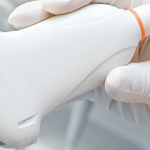They also knew BL had a DNR order, but were mystified and concerned about what they had witnessed in her hospital room at the time of the aspiration. They told me how grateful BL and they were for the end of the acute horror they all experienced that day. But they also related that they just couldn’t understand why the medical resident was unable to help prior to the final resolution of the problem.
We fondly recalled together the joyful person we knew before her disease closed in on her.
Beyond One
I have asked myself, when I have relived this experience, if my response would have been as rapid if I had not known and liked the patient and her family. What if this was a person I was seeing for the first time? Would the course of events have rapidly played out in the same manner as for BL? Would I have been able to recognize a reversible situation and respond appropriately even for a patient I did not know? Does knowing a patient well affect the manner in which we interpret medical or legal rules in challenging circumstances?
We all have what can at times be a somewhat tenuous connection with the core values of caring, compassion and empathy. What if I were a DNR? Would I be grateful if someone saved me from an agonizing death from aspiration? How can this be wrong? Particularly at a time of acute stress and confusion about the rules regarding when it is right to have this instinct guide responses in the setting of conflicting rules and legal circumstances, can being confident in compassion for a complete stranger provide the needed personal agency to do the right thing?
It is inevitable that we consider how these lessons might apply to other medical situations. We are not gynecologists who now must deal with decisions regarding termination of pregnancy (thankfully). What should they do when a woman seeks to terminate a pregnancy because of a set of overwhelmingly negative personal or medical circumstances? What if this person was indeed a stranger and we were hearing their story for the very first time? Would it make a difference, as it might have for the medical resident who misinterpreted the meaning of a DNR order? Would a familiar feeling of default compassion trigger, and then inform, an appropriate medical approach?

